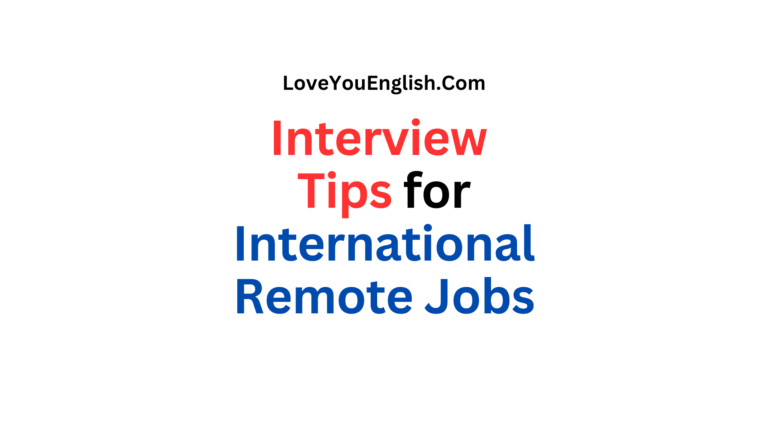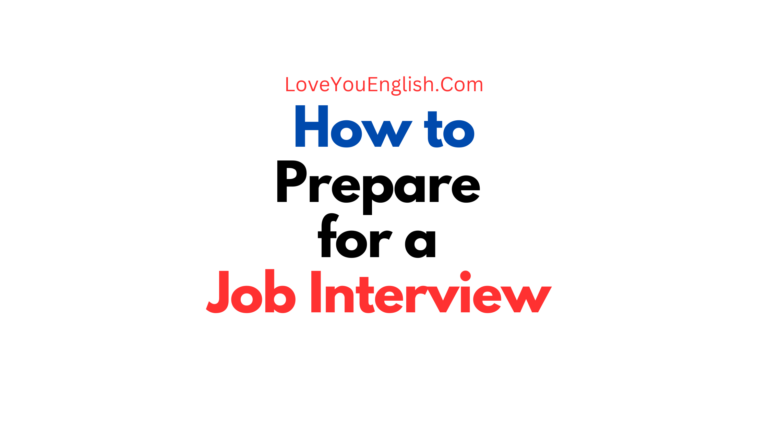How to Respectfully Decline a Job Interview
Job interviews are an essential part of the job search process. However, there may be times when you need to say no to an interview. It could be because the job isn’t the right fit, you’ve already accepted another offer, or personal reasons prevent you from attending. Whatever the case, it’s important to decline politely and professionally. This ensures you leave a positive impression on the company and maintain a good reputation.
In this post, I’ll guide you on how to respectfully decline a job interview. We’ll cover reasons for declining, how to communicate your decision, and tips to keep the process professional yet kind.
Why Would You Decline a Job Interview?
Before diving into how to decline, let’s explore some common reasons why people choose not to attend an interview:
- The job isn’t the right fit: You may realize after reviewing the job description that the role doesn’t align with your skills, interests, or career goals.
- You’ve accepted another offer: If you’ve already committed to another job, it’s best to decline other interviews to avoid wasting anyone’s time.
- Personal reasons: Sometimes, personal circumstances like health issues, family responsibilities, or unexpected events can prevent you from attending.
- Change in priorities: Your career goals might shift, and the opportunity no longer matches what you’re looking for.
- Concerns about the company: If you’ve done research and discovered negative reviews, poor management practices, or an unhealthy work culture, you might decide to decline the opportunity.
Why It’s Important to Decline Respectfully
Declining an interview respectfully is not just about courtesy; it’s about leaving a positive impression. Even if this job isn’t right for you, future opportunities with the same company might arise. A professional approach ensures you don’t burn any bridges.
Additionally, recruiters and hiring managers appreciate honest and timely communication. By letting them know in advance, you save their time and allow them to focus on other candidates.
Steps to Politely Decline a Job Interview
Here’s how to decline a job interview while maintaining professionalism:
1. Respond Promptly
Once you’ve decided to decline, inform the recruiter or hiring manager as soon as possible. Delaying your response can inconvenience them, as they need time to schedule other candidates.
2. Use the Right Medium
Email is the most professional and commonly used method to communicate your decision. It’s polite, clear, and allows the recipient to process your message without pressure. If the recruiter initially contacted you by phone, you could also call to decline, but follow up with an email for clarity.
3. Be Clear and Direct
State your decision politely but firmly. Avoid being vague, as this could lead to confusion. For example:
- Instead of: “I’m not sure I can attend the interview,” say: “I would like to decline the interview for the [Job Title] position.”
4. Express Gratitude
Thank the recruiter or hiring manager for considering your application and inviting you for the interview. Showing appreciation reflects well on your character and leaves a positive impression.
5. Provide a Reason (Optional)
While you don’t have to give a reason for declining, it can be helpful to do so. Keep it brief and honest, but avoid being overly detailed or critical. For example:
- “I have accepted another opportunity that aligns better with my career goals.”
- “After reviewing the job description, I’ve realized the role isn’t the right fit for me at this time.”
6. Maintain a Positive Tone
Be respectful and courteous throughout your message. Even if the job isn’t a fit, the company deserves your kindness and professionalism.
7. Offer to Stay in Touch (Optional)
If you genuinely want to stay connected with the company for future opportunities, mention it. This keeps the door open for potential collaborations later.
Sample Email Templates for Declining a Job Interview
Here are some examples of how you can word your response:
Template 1: Declining Due to Another Opportunity
Subject: Thank You for the Opportunity
Dear [Recruiter’s Name],
Thank you for inviting me to interview for the [Job Title] position at [Company Name]. I truly appreciate the opportunity and the time you’ve taken to review my application.
After careful consideration, I have decided to pursue another opportunity that aligns more closely with my career goals. As such, I must respectfully decline the interview.
I hope we can stay connected, and I wish you all the best in finding the right candidate for the role. Thank you again for your understanding.
Best regards,
[Your Name]
Template 2: Declining Because the Role Isn’t a Fit
Subject: Thank You for Considering My Application
Dear [Recruiter’s Name],
Thank you for reaching out and offering me the opportunity to interview for the [Job Title] position at [Company Name]. I’m grateful for your consideration and the time you’ve spent reviewing my application.
After further reflection, I’ve realized that the role does not align with my current career goals. Therefore, I would like to respectfully decline the interview.
I appreciate your time and understanding. I wish you and your team success in finding the right candidate for the position.
Sincerely,
[Your Name]
Template 3: Declining Due to Personal Reasons
Subject: Interview Invitation for [Job Title] Position
Dear [Recruiter’s Name],
Thank you for considering me for the [Job Title] position at [Company Name]. I’m honored by the invitation to interview and truly appreciate the opportunity.
Unfortunately, due to personal reasons, I am unable to proceed with the interview process at this time. I regret any inconvenience this may cause and thank you for your understanding.
I wish you the best in your hiring efforts and hope our paths may cross again in the future.
Best regards,
[Your Name]
Tips for Declining a Job Interview
- Keep it brief: Avoid overexplaining or providing too many details. A concise message is more professional.
- Stay professional: Even if you have concerns about the company or role, focus on positive language. Criticism could harm your reputation.
- Avoid ghosting: Ignoring the invitation is unprofessional and may reflect poorly on you. Always respond, even if it’s a “no.”
- Be empathetic: Hiring managers and recruiters invest time in reviewing applications and scheduling interviews. Respect their efforts by being timely and polite in your communication.
- Don’t close doors unnecessarily: If there’s a chance you might be interested in future roles, express your interest in staying connected.
Conclusion
Declining a job interview can feel awkward, but it’s a normal part of professional life. By responding promptly, showing gratitude, and maintaining a respectful tone, you can handle the situation gracefully. Remember, a polite decline today might pave the way for better opportunities in the future. Always prioritize professionalism and kindness—these qualities go a long way in building a positive reputation.
Whether the timing isn’t right or the role isn’t a fit, communicating your decision respectfully will leave a lasting impression. Good luck with your career journey!
Read more:
- English Conversations About Migration
- Real Business English Conversations: A Sales Pitch & Interview
- English Conversations About Australia
- English Dialogues About Gifts
- English Conversations About Asia
- English Dialogues About Wild Animals
- English Conversations About Waterfalls
- English Conversation about the Environment







